Michelangelo’s Chisel
The future haunts me. Prophecy is a form of paranoia. But counseling is a waste of time. Quitting coffee was worth the headache and a listless day or two. But Dilantin only makes me dizzy and depressed, and so my prescriptions go unfilled. I’m entering product codes into a Cobol application’s DATA division, listening to the office radio when a BBC newscaster announces thirteen-year-old Garry Kasparov has won the Soviet Junior Chess Championship in Tbilisi. My pulse rings in my head like steel chipping at stone, and my legs grow numb so that even if I wanted to I could not stand. This is how it begins.
A friend who once survived a head-on collision claims to have seen her van’s windshield’s near instantaneous explosion spread out over several seconds, spider web cracks and fissures branching and growing like living crystals, laminated glass shivering and billowing like a gently blown bubble. It begins with time’s paralysis.
A cathode’s electron beam sweeps across my screen, silhouetting gray text on ghostly flickering green, refreshing pass by pass, line by line, then pel by pel, the columns of mnemonics I have typed. Phosphors remember faded burn-ins of the login prompt. When the raster freezes, the universe remembers me. The screen looks into me. And in its layers upon fossilized layers, I see every symbol ever etched there.
When I wake, my voice will be raw as if from screaming and I might have soiled myself. Coworkers will surround me. But they’ve learned better than to put things in my mouth. Most still believe that I suffer from some form of epilepsy. But after today, I prophesy a few more will buy my story. One I’ve told many times.
Back in 1969 I attended a lecture on The Future of Computing by a Renowned Computer Scientist over in the University of Waterloo’s Psych building’s Great Lecture Hall. I was supposed to be writing my midterm for Psych 218: The Psychology of Death & Dying; but, because I hadn’t been to any classes yet, didn’t realize that this particular bird course was being offered over at Saint Jerome’s, one of the university’s on-campus church college affiliates, and not in the university per se’s Psych department’s new building like you’d assume. Although I guess I could’ve looked more closely at my curriculum.
The ninety minute Death & Dying exam was scheduled to begin at 2:00 PM in room 103. The Psych building was rumored to have been experimentally modeled on a maze. I understood room 103 could be anywhere: tucked up on the fifth floor beside 602, or hanging off some third floor office like a subroutine or walk-in closet—with no way to tell if you’re on the right track, as in getting warmer. And so I’d allocated twenty minutes to what I expected would be a tedious iterative search. But a full hour-and-half later I had still not found my target, and, as I again passed the Great Lecture Hall’s lacquered double doors, began to sense that I was trapped in a closed loop. Had I stepped resignedly back to think beyond the immediate problem, I might’ve determined that I was in the wrong place and considered then what the right place might be. But instead, as my remaining time grew less and less, I only picked up the fruitless pace, walking until I could heel-toe it no faster, then jogging, then running. Faster and faster. Until I was fairly sprinting.
It didn’t help that in overcompensation for not having cracked E. Kübler-Ross’s course assigned text I’d taken four trucker grade caffeine tablets to juice my brain’s essay question bullshit centers, and so was tweaking on what’s probably the equivalent of about twenty cups of coffee as I streamed up, down, around and through the Psych building’s labyrinthian stairwells, hallways and rooms in search of 103, sweating ever more profusely and cursing less softly at each dead end. I passed others en route, but they ignored me in the way many ignore streakers, sharkers and other social oddities: with the kind of stony intensity and downcast determination that tells you they’re afraid. Also, and no doubt because of the caffeine, I felt I was operating at a markedly faster clock speed than everyone else, that it’d be hard to drop to their levels, and expecting too much for them to step up to mine. And so I never paused to seek guidance. In fact, the only time I idled before entering the Great Lecture Hall to crash in one of its back row’s theater style seats, was to empathize with some caged white rats in a fourth floor lab’s hall window. Their skulls’ parietal and frontal plates had been removed. Labeled colored wires connected batteries, solenoids, voltmeters, oscilloscopes and sundry other electronics to their exposed brains’ various centers of interest.







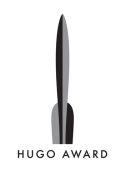
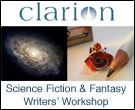



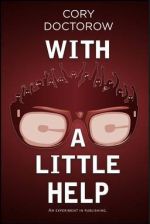
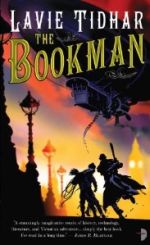
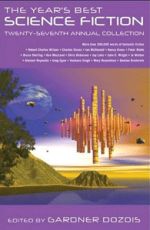





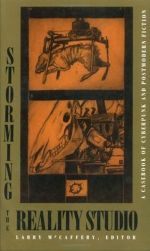



6 comments
[…] Michelangelo’s Chisel by Christopher […]
[…] “Michelangelo’s Chisel” by Christopher Miller at RedStone Science […]
Great story. I loved that everyone in the story bought into that future. Thanks!
Thank you, Matthew. For reading and for your kind remarks.
Thank you too, Sarah, for your complimentary remarks regarding the piece over in your essay thread.
[…] us the traffic push we needed. The stories we published are quite good. I love the weirdness of Michelangelo’s Chisel and the clever metafiction of Elevator Episodes in Seven Genres. Quality essays and our science […]
Nice work, Chris. Enjoyed it thoroughly.